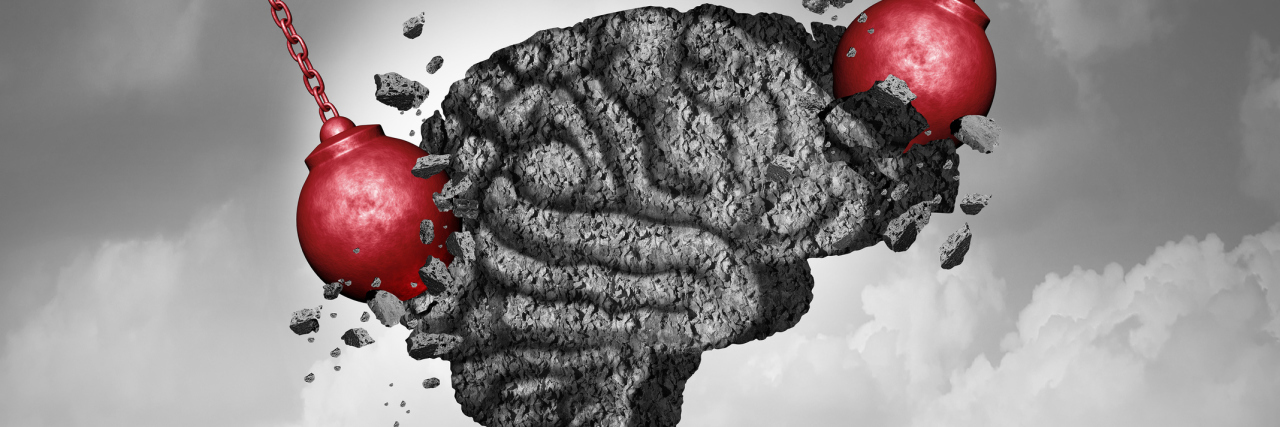Any time you have a general feeling of being unwell, I find everything else tends to drag you down. There just seems to be not enough energy to get you through the day, you know? You feel weak, sluggish, possibly congested in the sinuses, and more. All in all, it’s frustrating, regardless of whatever illness, infection, virus, or chronic pain flare-up you’re experiencing.
For those of us who endure migraine, our mental health can also be pretty significantly impacted.
Besides having a throbbing head, potentially visual auras, muscle spasms, feeling nauseated, and more, there’s a mental illness impact as well, not only making the pain seem that much worse, but may involve feelings of anxiety, depression, and more.
Dawn Buse, Ph.D. director of behavioral medicine at the Montefiore Headache Center said individuals who suffer from migraine are five times more likely to develop depression than someone without migraine. She also notes approximately 20% of all individuals who have episodic migraine (headaches on 14 or fewer days per month) may have depression. That number climbs pretty dramatically for individuals who have more headaches per month. Thirty to fifty percent of all individuals who have chronic migraine have anxiety as well.
Still to this day, the medical world is still not entirely sure what causes migraine, which is pretty significant since 12% of the U.S. population at minimum endure migraine headaches.
In a 2015 study conducted by the Department of Neurology at New York University, the Department of Internal Medicine at New York University and others, discovered more than a few fascinating aspects of migraine and their impact on mental health.
- Patients who have migraine with auras are three times more likely to have bipolar disorder than the general population.
- Over half of patients with migraine will meet criteria for at least one anxiety disorder in their life.
- Anxiety disorders are two to five times more prevalent in patients with migraine than the general population, and up to two times more common in patients with migraine than in patients with depression.
- Patients with obsessive-compulsive disorder (OCD) are also at a high risk of experiencing migraine.
- Patients with migraine and anxiety spend an average of over $4,500 a year more than individuals without comorbid anxiety.
- Childhood emotional abuse is a risk factor for chronic migraine, disabling migraine, and earlier onset migraine.
- At this time, there is limited data on how migraine and attention-deficit/hyperactivity disorder (ADHD) impact one another.
Mental health and how it impacts medical conditions and vice versa is no joke. It can have a debilitating impact on life, so much so that those who have the condition who aren’t currently enduring a migraine in that moment can be impacted significantly by symptoms of their depression, anxiety, and/or other mental illnesses.
If you endure migraine and mental illness, what are some things you wish others would tell you or encourage you by saying? What things would you really wish that you wouldn’t say?
Getty image by wildpixel

